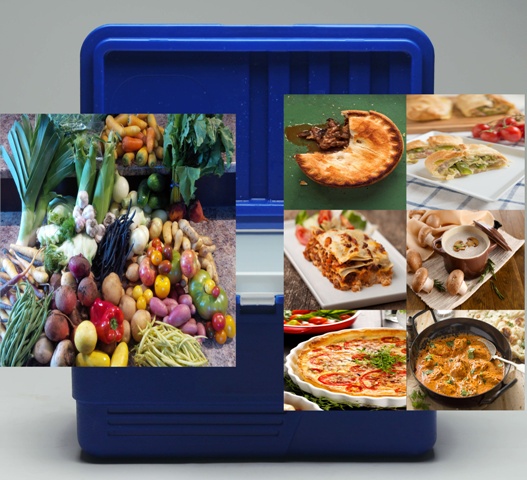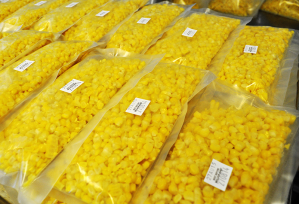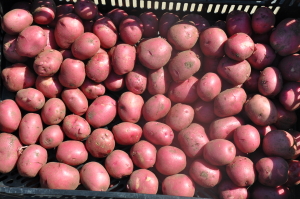We are among the first farms in the region to be entitled to use the term “Canadian Organic” as our farm now meets (or exceeds) the Canadian Organic Standards which became effective 30 June 2009. We are proud to exhibit this logo which tells the world that we everything we grow is “organic” and CANADIAN.
When buying “organic” produce locally, be sure you see this emblem – otherwise it’s NOT organic!!






Congratulations! GREAT news!
Congrats! But the logo is actually voluntary so not all good organic products will have the above logo. They will have a certifying body logo though! Can’t wait to try my first basket!
All products which meet the Canadian Organic Standards (“COS”) are authorized to use this logo.
Non-certified (“wantabe”)organic producers cannot use this logo and now they cannot even use the term “organic” if their products cross provincial boundaries. Consequently, you will see lots of “biodynamic,” “natural,” or “earthy” products out there.
Unfortunately,Ontario has not regulated “organic” production so “wantabe” organic producers in Ontario can still use the term “organic” if they do not sell their products in other provinces. “Wantabe” organic producers in Quebec cannot use the term “organic” regardless of where they sell their products. BUYER BEWARE!
Products which conform to other organic (perhaps lesser)standards may be “certified” but may not conform to the Canadian Organic Standards.
Confused?
Just look for the Canadian Organic logo to be sure!
Congrats on the new cert!
Any plans on going after an even tougher standard such as Demeter certification, or the less superstition infused permaculture standards? Superstitions in the Demeter certification aside, a permaculture/biodynamic farm looks to be an even more sustainable form of agriculture than organic in the long run.
Given you already forage a lot of wild stuff at certain times of the year, the big requirement is leaving 10% of land in a wild state, shouldn’t be too hard for you to achieve (though Ive never been to your farm, I don’t know how much wild land you keep).
And off tangent but another question I had… do you ever do any seed saving of your own? I know you bring in loads of various seed every winter for the next year’s harvest but do you ever try to save any seed of your own for the next year? I would imagine for the scale of farming you do it isn’t practical (and now that I think about it, you don’t keep the fruits and hence seeds of your labour), but we’ve had good luck with some heirloom tomato seed in our small garden plot sent to us from NB by the my mom-in-law, in which we saved our own seed for the last couple of years. Not all of our saved seed germinates but a good 85-90% does…
Thanks so much for this and our farm exceeds the COS standards but we are pleased to acknowledge them as they represent a unified standard of organic practices and informs the public as to the minimum methods used on the farm.
We often use biodynamic practices on our farm as well but have no intention of becoming “certified biodynamic” anytime soon. “Canadian Organic” is enough for the time being as only about 10% of our farm is actually used in our vegetable production. The rest is “wild” and bush.
We have saved lots of seed in the past, but given the scale of our operation, it is really not practical and yields very unreliable seed. We have purchased seed from small producers but the seed did not perform well.
We prefer to buy our seed from established wholesalers (around the globe)of heirloom, certified organic seed who offer seed which we can count on. There is nothing more disappointing than planting an acre of anything only to find out weeks later that the seed was bad and the crop is a total loss!
Good luck with your heirloom tomatoes – they are always worth the effort. We are growing nearly 300 varieties in 2009 – with more than 20,000 plants!Soon they be finding their way to the baskets!
This is wonderful news! Congratulations!!!
Did you know that your baskets are also baby-approved? 🙂
Thanks so much and the pictures are adorable!
Comments like this one make it all worthwhile!
“You have helped change the eating habits of my 6 and 7 year old.
They now love fiddle heads, asparagus and beets.
They look forward every week to seeing if there are any ‘mystery veggies’ in the delivery.(ones we can’t identify right away such as Jerusalem artichokes).
They also can tell the difference taste wise in your produce.
They tell me they only like and want ‘the farmer’s’ broccoli or cauliflower.
The only downside is my daughter recently told me she wasn’t going to eat any fruit with ‘spray’ on it….
and this is how young children help influence us to make healthier changes for ourselves and our planet.”